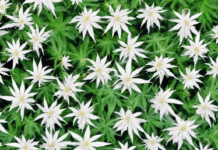Khujli ki dawa—commonly known as treatment for itchiness—is a topic that often gets overlooked despite its prevalence and importance. Itchiness, or khujli, can be caused by a variety of factors, including skin conditions, allergies, insect bites, and more. It can range from being a mild annoyance to a persistent, uncomfortable sensation that greatly impacts one’s quality of life. Finding the right khujli ki dawa is crucial for effective relief and to address the underlying cause of the itchiness. In this comprehensive guide, we will explore various remedies and treatments for itchiness, ranging from over-the-counter solutions to natural remedies.
Understanding Itchiness: Causes and Symptoms
Before diving into the khujli ki dawa, it is important to understand the causes and symptoms of itchiness. Itchiness can be triggered by a wide range of factors, including:
Common Causes of Itchiness:
- Skin Conditions: Conditions such as eczema, psoriasis, dermatitis, and fungal infections can cause persistent itchiness.
- Allergies: Allergic reactions to certain substances like pollen, dust mites, or pet dander can lead to itching.
- Insect Bites: Mosquito bites, ant bites, and other insect bites can cause localized itchiness.
- Dry Skin: Lack of moisture in the skin can result in dry, itchy patches.
- Medications: Some medications may have itchiness as a side effect.
Symptoms of Itchiness:
- Redness
- Swelling
- Bumps or blisters
- Burning sensation
Identifying the underlying cause of itchiness can help determine the most effective khujli ki dawa.
Over-the-Counter Remedies
When it comes to finding quick relief for itchiness, over-the-counter remedies can be a convenient option. These products are readily available at pharmacies and are designed to provide fast relief from itchiness. Some common over-the-counter khujli ki dawa include:
- Antihistamine Lotions: These lotions contain ingredients that help reduce itching and inflammation.
- Hydrocortisone Cream: Effective in reducing itching and inflammation caused by skin conditions like eczema and dermatitis.
- Calamine Lotion: Soothes itching and helps dry out rashes.
- Topical Anesthetics: Numbing agents like pramoxine can provide temporary relief from itching.
Always follow the instructions provided on the product packaging and consult with a healthcare professional if you have any concerns about using over-the-counter remedies.
Prescription Medications
In cases where itchiness is persistent and severe, a healthcare provider may prescribe medications to address the underlying cause. These khujli ki dawa may include:
- Topical Steroids: Stronger corticosteroids may be prescribed for conditions like psoriasis or severe eczema.
- Antihistamines: Oral antihistamines can help relieve itching from allergic reactions.
- Immunosuppressants: In certain cases, medications that suppress the immune system may be prescribed to manage severe itching.
It is important to use prescription medications as directed and to follow up with your healthcare provider regarding any concerns or side effects.
Natural Remedies for Itchiness
For those looking for khujli ki dawa that are more natural or holistic, several remedies may offer relief:
- Oatmeal Baths: Adding colloidal oatmeal to bathwater can soothe itchy skin.
- Aloe Vera: The gel from the aloe vera plant can help reduce inflammation and itching.
- Coconut Oil: Applying coconut oil to the skin can help moisturize dry, itchy patches.
- Tea Tree Oil: Known for its anti-inflammatory properties, tea tree oil can help relieve itching from insect bites or rashes.
- Cold Compress: Applying a cold compress can numb the skin and provide temporary relief from itching.
Natural remedies can be a gentle and effective way to manage mild to moderate itchiness. However, it is important to be cautious and do a patch test before applying any new substance to the skin, especially if you have sensitive skin or known allergies.
Preventing Itchiness
In addition to finding the right khujli ki dawa for relief, taking steps to prevent itchiness in the first place can be beneficial. Here are some tips for preventing itchiness:
- Moisturize regularly: Keeping the skin well-hydrated can prevent dryness and itchiness.
- Avoid allergens: If you have known allergies, take steps to avoid triggers that can cause itching.
- Wear loose-fitting clothing: Tight clothing can irritate the skin and lead to itchiness.
- Practice good hygiene: Keeping the skin clean can help prevent bacterial or fungal infections that may cause itching.
- Manage stress: Stress can exacerbate certain skin conditions, so practicing stress-management techniques can help reduce itchiness.
By incorporating these preventive measures into your daily routine, you can reduce the likelihood of experiencing itchiness and the need for frequent khujli ki dawa.
Frequently Asked Questions (FAQs) about Khujli Ki Dawa
1. Can I use over-the-counter itch relief creams for prolonged periods?
It is generally safe to use over-the-counter itch relief creams for short periods as instructed. However, prolonged use without medical supervision can lead to skin thinning and other side effects. If itchiness persists, consult a healthcare provider for further evaluation.
2. Are natural remedies like aloe vera and coconut oil safe for all skin types?
Natural remedies can be gentle, but individual reactions may vary. It is recommended to do a patch test on a small area of skin before applying to larger areas, especially if you have sensitive skin or allergies.
3. How do I know when to seek medical help for persistent itchiness?
If itchiness is severe, does not improve with over-the-counter remedies, is accompanied by other concerning symptoms like fever or rash, or significantly impacts your daily life, it is advisable to consult a healthcare provider for proper evaluation and treatment.
4. Can stress really worsen itchiness?
Yes, stress can exacerbate certain skin conditions like eczema and psoriasis, leading to increased itchiness. Managing stress through techniques like meditation, yoga, or therapy can help improve skin conditions and reduce itchiness.
5. Are there certain foods that can worsen itchiness?
Some people may find that certain foods, such as dairy, gluten, or spicy foods, can trigger or worsen itchiness, especially in those with food sensitivities or allergies. Keeping a food diary and noting any correlations with itchiness can help identify potential triggers.
In conclusion, managing itchiness effectively involves understanding the underlying causes, using appropriate khujli ki dawa for relief, and taking preventive measures to minimize itching in the future. Whether opting for over-the-counter remedies, prescription medications, or natural remedies, it is important to prioritize skin health and overall well-being. If itchiness persists or worsens, consulting a healthcare provider for proper evaluation and management is recommended.









